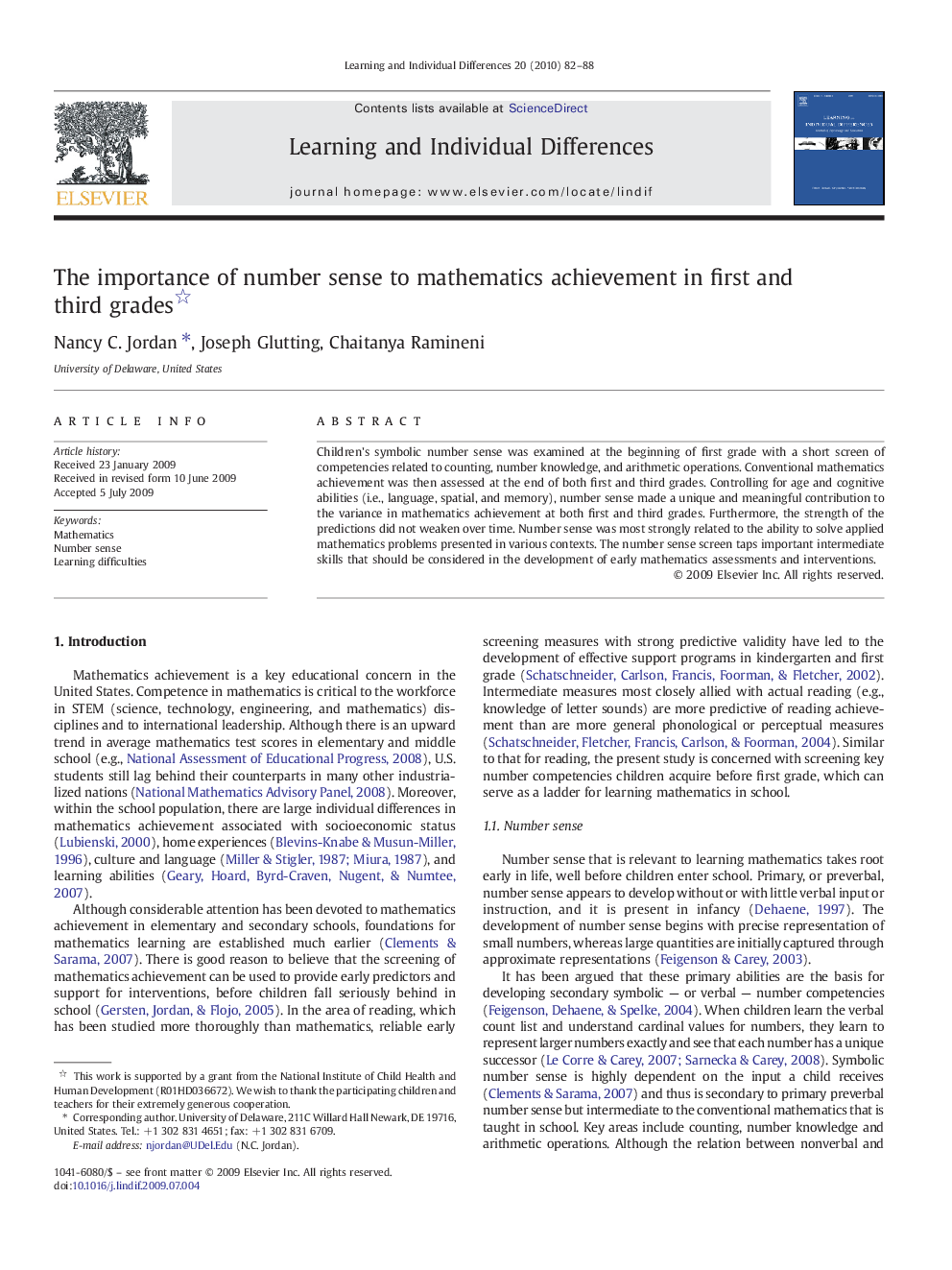| Article ID | Journal | Published Year | Pages | File Type |
|---|---|---|---|---|
| 365152 | Learning and Individual Differences | 2010 | 7 Pages |
Children's symbolic number sense was examined at the beginning of first grade with a short screen of competencies related to counting, number knowledge, and arithmetic operations. Conventional mathematics achievement was then assessed at the end of both first and third grades. Controlling for age and cognitive abilities (i.e., language, spatial, and memory), number sense made a unique and meaningful contribution to the variance in mathematics achievement at both first and third grades. Furthermore, the strength of the predictions did not weaken over time. Number sense was most strongly related to the ability to solve applied mathematics problems presented in various contexts. The number sense screen taps important intermediate skills that should be considered in the development of early mathematics assessments and interventions.
